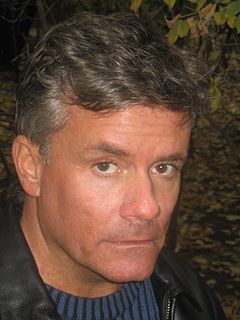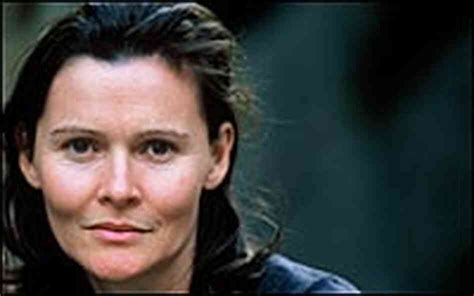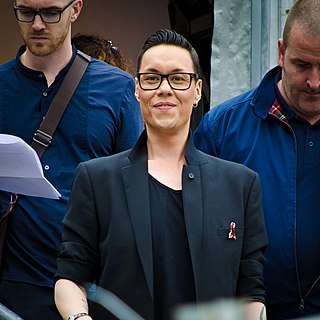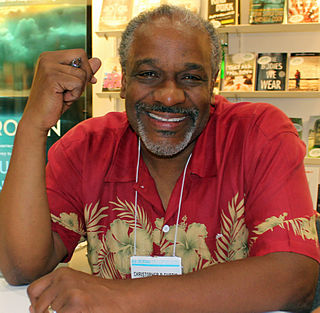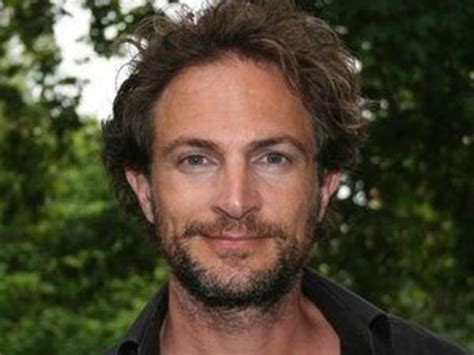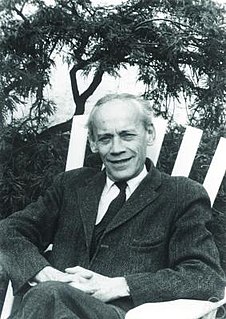A Quote by Jeffrey Tayler
My writing derived from the conviction I conceived during my college years: one should lead one's life as if one were the protagonist of an epic novel, with the outcome predetermined and chapter after chapter of edifying, traumatic, and exhilarating events to be suffered through. Since the end is known in advance, one must try to experience as much as possible in the brief time allotted. Writing is a way of ensuring that you pay enough attention along the way to understand what you see.
Quote Topics
Advance
After
Along
Attention
Brief
Chapter
College
College Years
Conceived
Conviction
Derived
End
Enough
Ensuring
Epic
Events
Exhilarating
Experience
Known
Lead
Life
Much
Must
Novel
Outcome
Pay
Possible
Predetermined
Protagonist
See
Should
Since
Suffered
Through
Time
Traumatic
Try
Understand
Way
Were
Writing
Years
Related Quotes
I'm more or less happily writing Chapter Six of The Graveyard Book. I say more or less as I'm at that place where I hope that the book knows what it's doing because right now I don't have a clue - I'm writing one scene after another like a man walking through a valley in thick fog, just able to see the path a little way ahead, but with no idea where it's actually going to lead him.
Striding tall through Lauren St John's gorgeously written memoir is her father, and chapter after chapter their relationship is untangled and celebrated. Joy and a hunger for life infuse this book -- whether St John is writing about the harrowing years of Rhodesia's civil war, her childhood adventures in the bush, or the breaking apart of her family. Rainbow's End is a most generous and wise book.
I try to make the writing as regular and regimented as possible. I usually get up at around 5 a.m. and read what I wrote the day before. Some of the time, after I read, I think the writing's very good and some of the time I feel embarrassed by what I've written. You have to learn not to pay too much attention to these feelings.
In terms of style, I think the memoirist should have a novelist's skill and all the elements of a novelist's toolbox. When I read a memoir, I want to really, deeply experience what the author experienced. I want to see the characters and hear the way they speak and understand how they think. And so in that way, writing a memoir feels similar to writing a novel.
If Mother Culture were to give an account of human history using these terms, it would go something like this: ' The Leavers were chapter one of human history -- a long and uneventful chapter. Their chapter of human history ended about ten thousand years ago with the birth of agriculture in the Near East. This event marked the beginning of chapter two, the chapter of the Takers. It's true there are still Leavers living in the world, but these are anachronisms, fossils -- people living in the past, people who just don't realize that their chapter of human history is over. '
The idea was that we would decide the order when we looked at the proofs. I remember Brion Gysin saying "Well, why change it? It's perfect the way it is, the way it came from the printer." Made one major change, that is, the first chapter that came from the printers, which would be the beginning, we moved to the end. The first chapter became the last chapter. There's no actual cutups in Naked Lunch.
And if I really can see the future, then what does it mean? Is there any sense in our lives if everything is already out there, just waiting to happen? For if that were so, then life would be a horrible monster indeed, with no chance of escape from fate, from destiny. It would be like reading a book, but reading it backwards, from the final chapter down to chapter one, so that the end is already known to you.
E.L. Doctorow said once said that 'Writing a novel is like driving a car at night. You can see only as far as your headlights, but you can make the whole trip that way.' You don't have to see where you're going, you don't have to see your destination or everything you will pass along the way. You just have to see two or three feet ahead of you. This is right up there with the best advice on writing, or life, I have ever heard.
